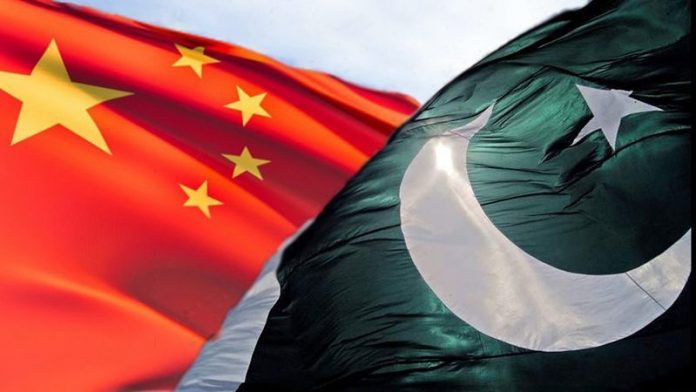BEIJING, ::China is ready to extend its achievements to the iron-brother Pakistan in the field of nanotechnology to promote high-yield agriculture, said Dr. Wu Zhiguo, Director of Nano Application Technology Research Office of Gansu Academy of Sciences.
Nanotechnology for high-efficacy agriculture will promote traditional agriculture on the road of high-quality connotative development. It can effectively promote farmers increase in production and income and solve problems such as abandoned farmland and the adverse effects caused by excessive use of pesticides and fertilizers.
We tend to extend this achievement to our iron brother Pakistan, he highlighted on a video meeting with Prof. Dr. Muhammad Yaseen from University of Faisalabad (UAF).
Ma. Yutian, Executive Director General of Gansu BRI Technology Transfer Center also attended the meeting, China Economic Net (CEN) reported on Thursday.
Dr. Wu further explained that at present, they have developed a series of nanoparticles, including iron, copper, silicon, zinc, and other series of high-quality nano-micro-fertilizer products.
The proprietary nanoparticles can increase production and efficiency, improve quality, resist pests and diseases and natural disasters, effectively reduce the use of chemical fertilizers and pesticides, and improve soil conditions.
In 2017, Prof. Yan Pengxun, Distinguished Researcher at Lanzhou Institute of Chemistry, Chinese Academy of Sciences, proposed to use high-quality elemental nano-powders for agriculture and nanotechnology high-yield agriculture.
In the past four years, sufficient trials, demonstrations and promotion of grain, fruits, vegetables, forage grass, and Chinese herbal medicine have been carried out in 23 provinces and municipalities in China. The total trial field has been accumulated more than 4,200 acres.
Prof. Dr. Muhammad Yaseen affirmed the results of Nanotechnology for High-yield Agriculture project and said that at present, 44 percent of the arable land in Pakistan is used to grow wheat, and the production of wheat is related to the food security of the whole country.
However, the yield of wheat per unit in Pakistan is lower than the world average, and agricultural scientists in Pakistan have been trying to introduce higher-yielding wheat varieties and new technologies.
Pakistan’s Faisalabad, a sister city of Gansu, welcomes the results of Nanotechnology for High-yield agriculture project to be tested in Faisalabad and we are looking forward to its success and its expansion throughout Pakistan to increase food production, Prof. Dr. Yaseen stressed.
On this occasion, Ma Bin, Chairman of Pakistan Qijun international Trading Co., Ltd., underlined that over the years, under the guidance of the Belt and Road Initiative and China-Pakistan Economic Corridor (CPEC), the research and cooperation between China and Pakistan in agriculture have been continuously promoted.
The results of Nanotechnology for High-yield Agriculture project will not only benefit Pakistani farmers, but also open a new way for China agricultural science and technology to reach the world.

















